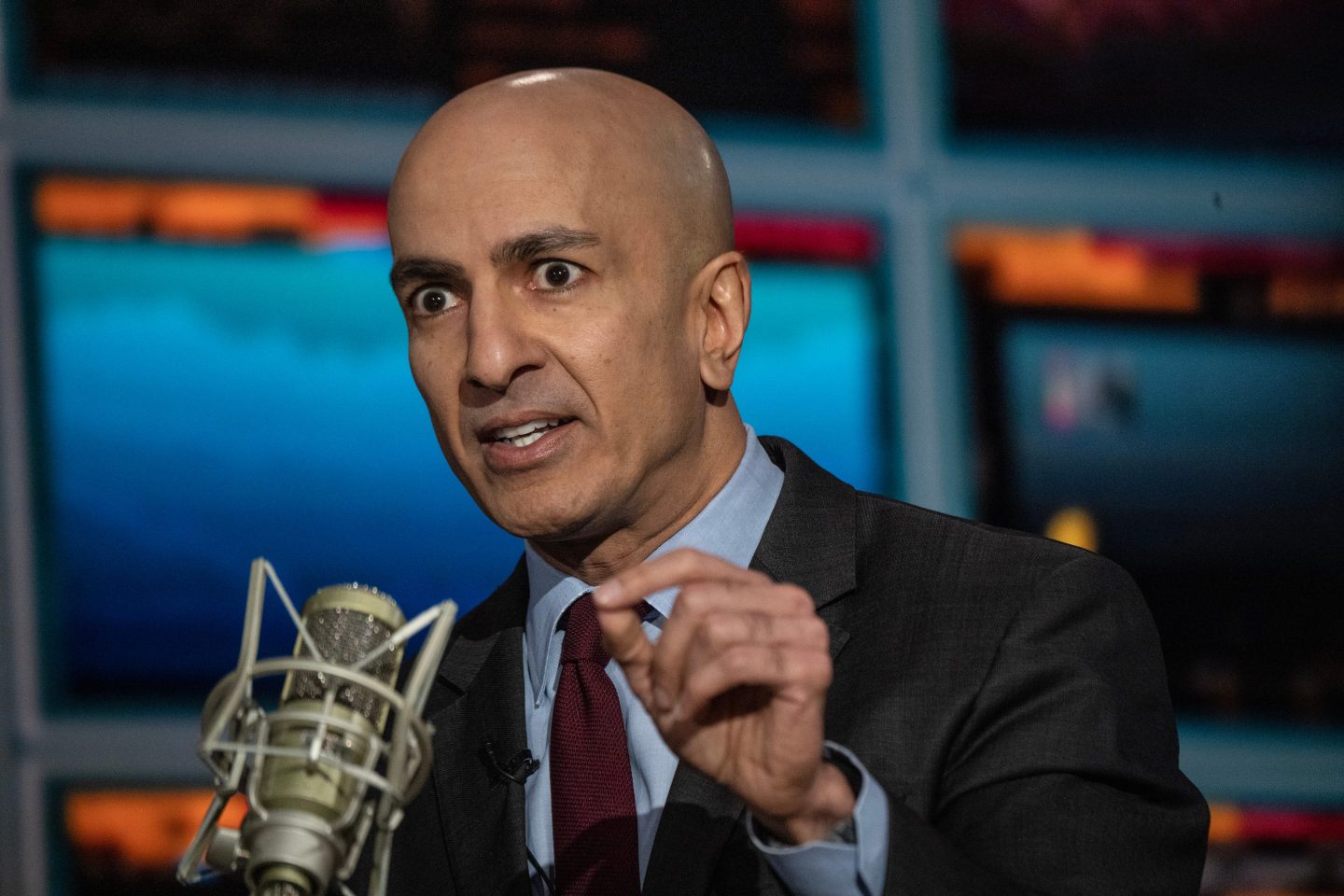U.S. consumers are so fed up with rising prices they would rather see the economy shrink than watch their costs get any higher, according to Neel Kashkari, president of the Federal Reserve Bank of Minneapolis.
As a result Kashkari, who has led the organization since January 2016, had some bad news for Wall Street: He doesn’t believe a cut is coming any time soon.
Financiers have been waiting for Jerome Powell to confirm when rates will begin to fall from a more than two-decade high.
Many previously believed that the process would have already begun by this point in the year, but analysts began revising their expectations when CPI data continued to come back sticky.
Indeed, inflation stubbornly stayed at 3.4% in April—exactly the same as it was back in December.
The figure is an improvement when viewed with a longer-term lens, however; when it peaked at 9.1% in June 2022, it still stayed well above the Fed’s 2% target.
While analysts who had hoped to work a cut into their forecasts may be disappointed, Kashkari insists a continued grip on monetary policy is what consumers want to see.
“I have learned that the American people—and maybe people in Europe equally—really hate high inflation. I mean, really viscerally hate high inflation,” he told the Financial Times’ The Economics Show podcast.
“One of the most profound comments that I’ve heard over the past couple of years was with a labour leader who represents low-income service workers … She said to me, inflation is worse than a recession. That is contrary to conventional economic thinking.
“I said I don’t understand how inflation can be worse than a recession. In a recession, you lose your job. Inflation, you just pay higher prices, you still have a job.”
He explained that this preference among labor unions is because workers have learned to deal with recessions before and can rely on friends and family for support.
Kashkari illustrated: “I lose my job, I lean on my sister or my parents or my friends, and they help me through it. But high inflation affects everybody. There’s no one I can lean on for help because everyone in my network is experiencing the same thing I’m experiencing.”
‘Remarkably’ resilient
Kashkari, a former aerospace engineer, is more hawkish about how the Fed should continue to handle the base rate in the future.
While Kashkari does not have a vote on the base rate this year, the 12 members of the committee will consider his thoughts—and he’s made it clear he believes the U.S. economy is still relatively healthy.
“In the US, GDP has been remarkably strong, very strong,” he explained. “The labor market has been resilient. Wage growth has been mostly resilient. And we’re seeing even the housing market has shown signs of resilience. So if I look at this resilience and economic activity, that does not look like an economy that is under pressure of very high, very tight monetary policy.”
Currently, the base rate sits at approximately 5.5%—whereas prior to the pandemic, it sat at just 0.25%.
Kashkari predicts that the future of the base rate lies somewhere in the middle, maybe around the 2.5% mark.
But he qualified: “That’s very uncertain. That’s gonna depend on what happens to productivity growth, among other things. And for example, like, what impact AI ends up having on the economy?”
Indeed, the former Goldman Sachs staffer echoed a fear JPMorgan’s Jamie Dimon is voicing that few will want to listen to: The Fed could even hike rates.
“When we look at risk and rates we don’t always look guessing what the future is, [we are] kind of looking at a range of outcomes,” Dimon told CNBC during the J.P. Morgan Global China Summit in Shanghai last month.
“Do I think that rates can go up a little bit? Yes I do. And if they do is the world prepared for it? Not really.”
Kashkari said he believes the base rate will stay where it is for an extended period of time, or “until we get convinced that inflation is either well on its way going back down or it’s not.”
If the Fed remains unconvinced, he warned rates may even go up.
One thing’s for certain: Kashkari—who formerly held senior positions at the U.S. Department of the Treasury—will not endorse the Fed raising its inflation target from 2% to 3% and calling it a day.
He explained: “I think that’s a terrible idea because the next time we have a high inflation period, you might say, well last time they settled at three, maybe this time they’ll settle at four and you’ll see a gradual unanchoring of inflation expectations.”













